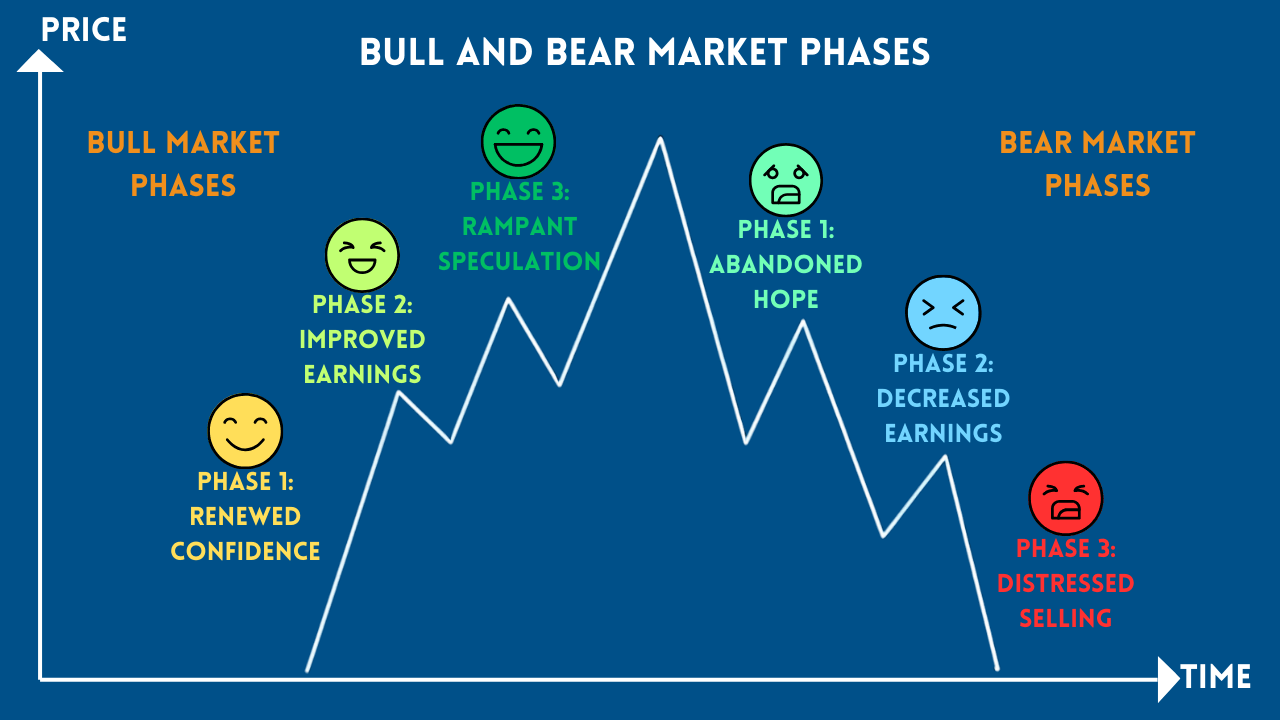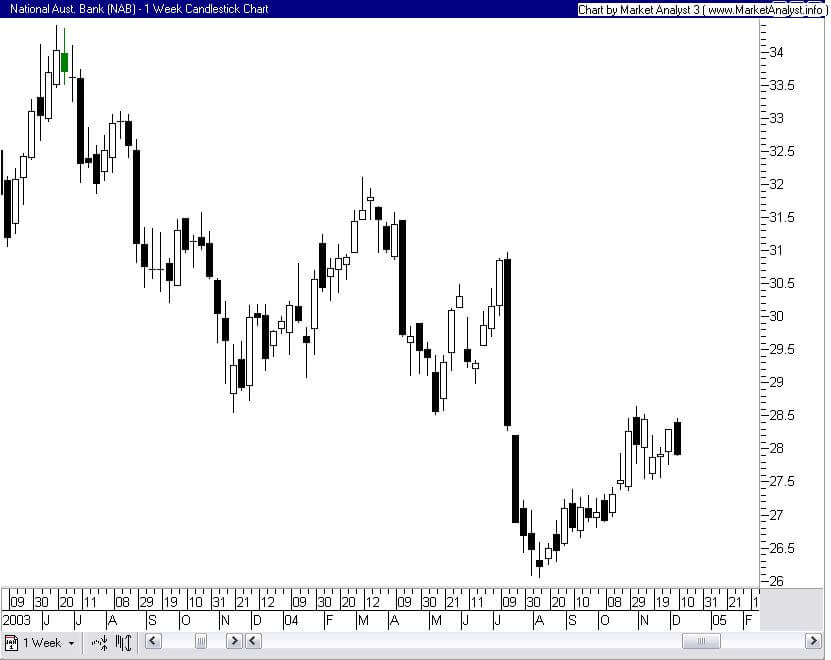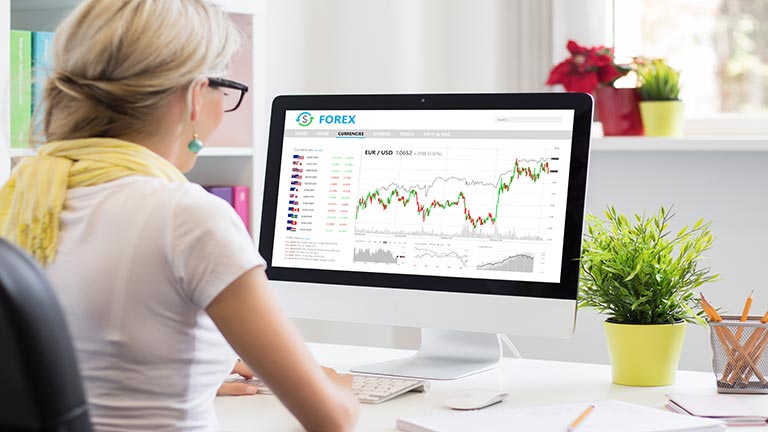Psychology of Trading: What Our Courses Teach You

By Dale Gillham
Understanding the dynamics of the stock market and why trends occur might seem straightforward if all investment decisions were based solely on rational thinking. However, studies have consistently proven that our psychology (your emotions) plays a much bigger role in our trading decisions than we might like to acknowledge.

By learning to recognise what drives common market trends and uncovering their emotional triggers, you can identify when your emotional impulses will likely influence your trading decisions.
Trading psychology vs trading skills
If you’re new to trading, you may not be aware that success in trading is 80 per cent psychology and 20 per cent skill. While more emphasis is placed on trading psychology, you must first develop the necessary skills to be a confident and competent trader. That’s because if you have poor skills, you’ll experience poor trading, which impacts your psychology. However, developing the right trading skills to be confident in the market will positively affect your psychology.
Those serious about being a consistently profitable trader will appreciate that you need to work on your personal psychology and behavioural patterns. That’s why we devote a whole module in our Advanced Trading Course to this topic.
Trading market trends
It's one thing to identify a market trend, but understanding why these trends occur and how to leverage this knowledge to your advantage is an entirely different skill set. I think this principle is important to understand because it will apply to all your investment endeavours.
As market trends unfold, they present patterns that can provide insights into the psychology of the market. While patterns vary in strength and consistency, they provide a visual representation of the mass mood of the market at a point in time.
Bar charts
Of the many ways in which analysts represent price action to analyse a stock or index, the bar chart is the most commonly used. This is because it tells you the trend of the market as well as the psychology of the market at the time.
For example, understanding the information represented by a single price bar (i.e. the open, high, low and close) is important as it signifies the psychology of the market or who is in control of the market. If the bar's close is in the lower third, it may signify that the bears (sellers) are in charge, but if the close is high, it may signify that the bulls (buyers) are taking charge. As bars unfold, they form patterns and trends to analyse that enable you to trade the market.
Candlestick charts
Candlestick charting has become a very popular technique among traders in the Western world for determining market psychology at a particular point in time. This is because candlesticks can assist in identifying the probability of the formation of peaks and troughs.
The emotion of the buyers and sellers forms the basis for each candlestick and each candlestick pattern formation. As you can see in the chart below, candlestick charting provides a visual insight into human psychology, which enables traders to quickly and easily interpret the short-term sentiment of the market.

Managing your trading psychology
As a trader, while knowing how to interpret the market is necessary, it's important to understand that you will never control it. But you have absolute control over deciding when to enter or exit a trade. Understanding when and why you should exit a trade is one of the most valuable skills you can develop to boost profitability.
To gain a competitive edge, you need to grasp the nuances of your trading psychology, regardless of whether you day trade or trade the forex market. But before we consider that, let’s look briefly at why most traders struggle to make money in trading various markets.
Cut your losses short and let your profits run
You have undoubtedly heard the saying, cut your losses short and let your profits run. Unfortunately, too many traders do the opposite and then give up altogether, believing trading is too hard and/or risky.
Selling too early just to lock in a profit is one of the major reasons why most traders achieve below-average returns and is a distinct sign of a lack of education. And the reason most traders sell too early is because they don’t know when the right time to sell is. They then blame the market or other external factors to justify or validate their poor performance.
Sadly, most traders fail to consider the real cost of their poor decisions and lack of education, including loss of capital, stress and anxiety, and lost opportunity, among others. Ultimately, if you want to trade like a professional and make the money successful traders make, you must do what they do.
Don’t follow the herd!
You have undoubtedly heard that 90 per cent of traders don’t make money consistently. That should make it abundantly clear to any logical individual that the only way to be a better trader is to avoid 90 per cent of the information you see, hear or read about trading. Put another way, you should only focus on learning what the 10 per cent who consistently make money do.
It is your money and your choice as to which journey you take to become a consistently profitable trader. You can make it as long and hard or as short and easy as you want. That said, being an outlier rather than part of the herd will ensure you achieve your long-term goals in the stock market.
Day trading psychology
For day traders, the objective is to close out all positions before the market closes to minimise your exposure to overnight market fluctuations. This necessitates a heightened awareness of potential market changes and rapid decision-making.
Notably, the first and last hours of trading tend to be the most volatile and can offer both profit opportunities and potential losses. To delve deeper into day trading psychology and succeed in this market, you can explore our comprehensive article, 'What is Day Trading', in our Learning Center.
Forex trading psychology
While forex trading can be exhilarating, it also comes with its fair share of risks, especially as you are trading leveraged markets. Sudden market shifts can harm your portfolio significantly if you succumb to the pitfalls that forex trading psychology can help you avoid. Since forex trading typically involves a longer-term focus (compared to day trading), maintaining composure under pressure and resisting emotional impulses can help you make well-timed decisions.
One common emotionally charged decision to be wary of is "anchoring," where investors fixate on historical or specific prices, such as the purchase price of a stock, and base their decisions on these emotional ties rather than current market conditions. The more self-awareness you gain about your reactions to market changes, the more likely you are to achieve success in forex trading.
Next steps
Our trading courses are designed to give you everything you need to know to profit from your investments consistently, with specific courses on topics like Forex trading and more. Start making smarter decisions today, and you’ll be able to maximise your profits while also mastering your trading psychology.
Dale Gillham is one of Australia's most respected analysts with over 30 years of experience in the investment industry, including banking, financial planning, share market education and professional trading. He is the best-selling author of multiple books, and is passionate about ensuring clients receive the highest level of education in the stock market with our share trading and investment course.






